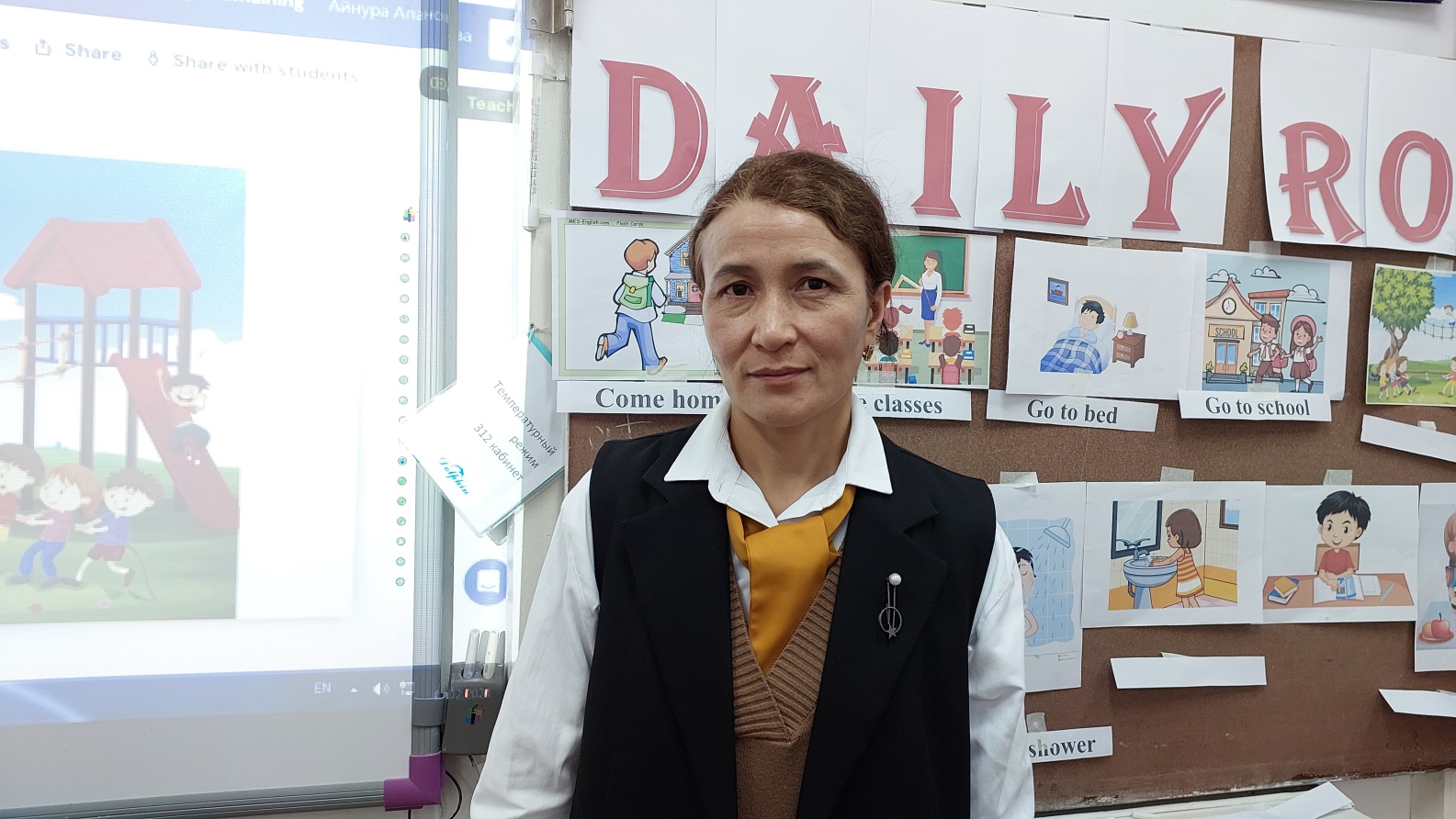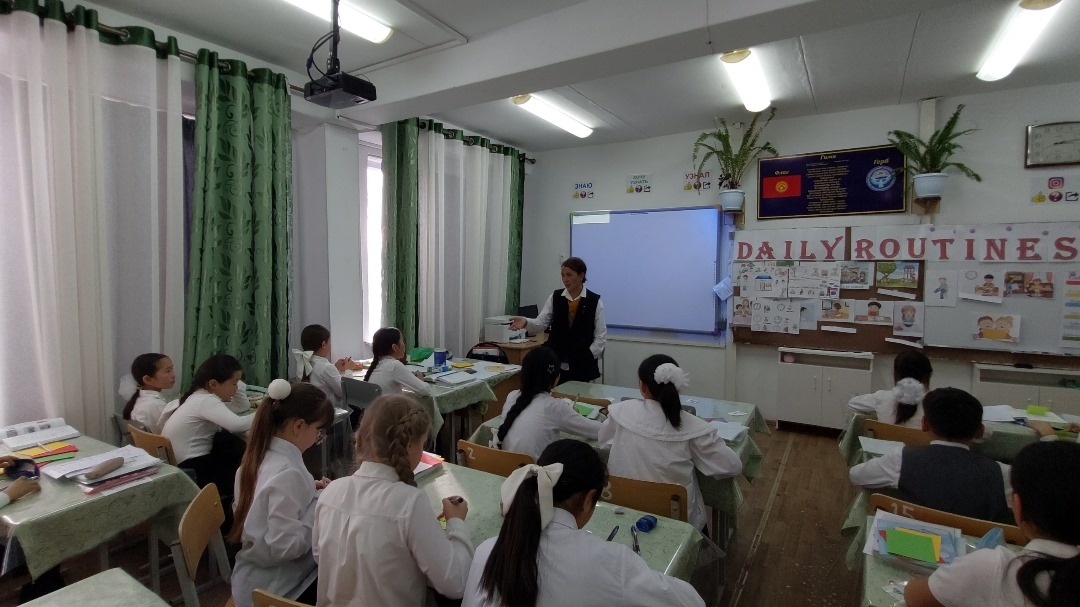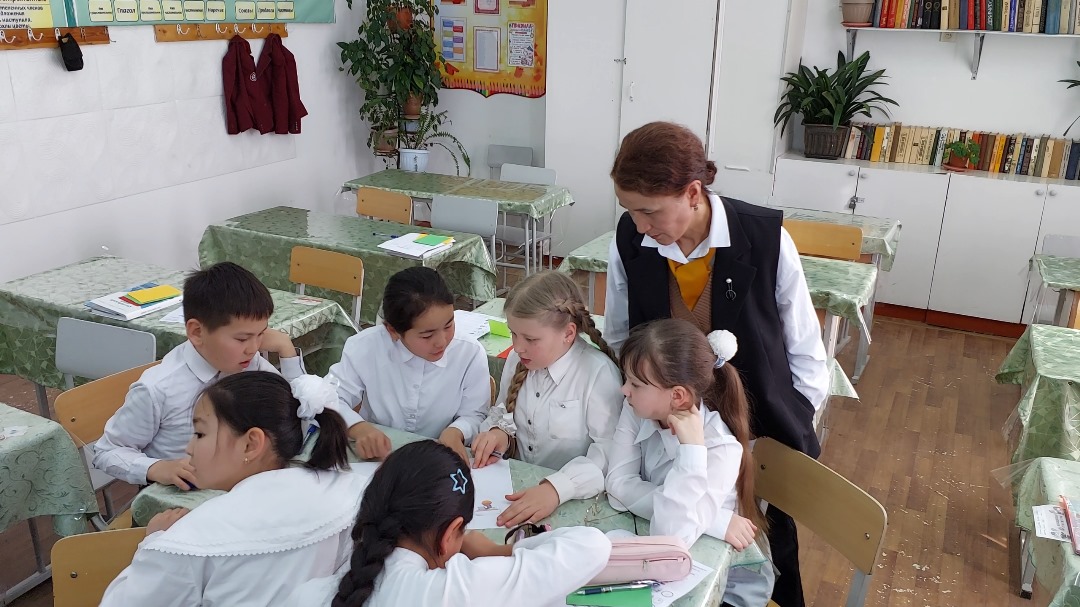| Lesson developer: Apanova Ainura N. | Time Required: 45 min |
|
| Date: |
| Objectives: at the end of the lesson students will be able to recognize, pronounce and write words for everyday activities: go, have, help, get up, do, read, as well as phrases with them. speak about their daily routines; develop speaking skills use Present Simple in their speech; describe Daily Routines using vocabulary related to activities. |
| Basic competence: BC – 1 (Information competence) BC – 2 (Social and communicative) BC – 3 (Self – knowledge and problem solving) |
| Subject competence: 1. SC1 verbal competence 2. SC2 language competence 3. SC3 social – cultural competence |
| Skills: Listening: recognizing every day activities words, drilling Speaking: make up sentences Reading: reading and learning new words, phrases Writing: writing Critical thinking: students will form sentences from word list to describe their Daily Routines |
| Type of the lesson: a lesson in the application of knowledge and skills |
| Forms: Working in group and in pairs, individually. |
| Methods: interactive, communicative |
| Materials: N. E Tsukanova, A. G. Fatneva, A. A Zholchieva (English language book for 4th ) Flashcards, visual representing daily activities Timer Worksheet or handout with Daily Routine questions |
| Procedures |
| Time / stages | Activities |
| Engage
5 min | Motivation/ Engage
Morning Mix – Up (elicit , identify how many words and phrases students know) Create cards with different morning routine activities pictures (brushing teeth, having breakfast, doing homework, going to school, getting up, going to bed etc.) and words. Distribute pictures to one group and cards with words to another group. Students must find the classmates with cards that match their routine and stand together. |
| Study
5 min | Begin by discussion the concept of Daily Routines. Ask students about their morning routines and the activities they do each day.
When do you have breakfast? What time do you get up? When do you go to bed? When do you go to school?
Introduce vocabulary related to daily activities (do homework, help about the house, play with friends, read a book, go to bed, have breakfast) using flashcards or visuals. Display a classroom clock or watch and explain the concept of time in relation to daily routines. Ex: I get up at 7. I have my breakfast at 7:30. I do my homework at 14:00 o’clock. |
| Study
10 min
assessment | Vocabulary and Matching activity
Review the introduced vocabulary with the class. Use flashcards or visuals to reinforce understanding. Teacher pronounces the words, point to pictures. Some of the phrases are new to students. Students look at pictures and select phrases for them. Students repeat phrases after the teacher and point to the corresponding picture. Students close phrases point to pictures and name an action. https://www.lessonup.com/en/lesson/BWteKLmgadkM7Rxfb?utm_source=app&utm_campaign=shared-lesson-app&utm_content=1706435201826&utm_medium=shared-link

Assessment GREEN: I understand and do not require help YELLOW: I need a little help but can make an attempt to get started RED: I am having trouble or I do not understand the task. |
| Activate 3 min
10 min
5 min | Pair work Match words and pictures. Students look at words and pictures match them. Then share with their answers to the whole class. Encourage students to tell a partner their own daily routines
Group Activity Divide the class into small groups and provide each group with a large sheet of paper or a poster. They can use drawings, cutouts, written descriptions to represent their daily routine. Ask each group to create a timeline of a typical day, including activities they do at different times. Groups present their timelines to the class; explain the activities and the time.
Daily Routine Charades (game) Write down various daily routine activities on slip of paper and put them in a hat or in a box. Have students take turns picking a slip and acting out the activity without speaking while the rest of the class guessing what is it. |
| 2 min | Conclusion Review the importance of routines and time management in daily life.
You are amazing! You are doing a great job! Stay creative! Keep smiling! |
| Assessment:
2 min | Assessment: Exit ticket - before leaving the class students write on a small slip of paper as many words as they recognized |
| Home work
2 min |
Exercise 4d pg 103 (write 5 daily activities)
|





















